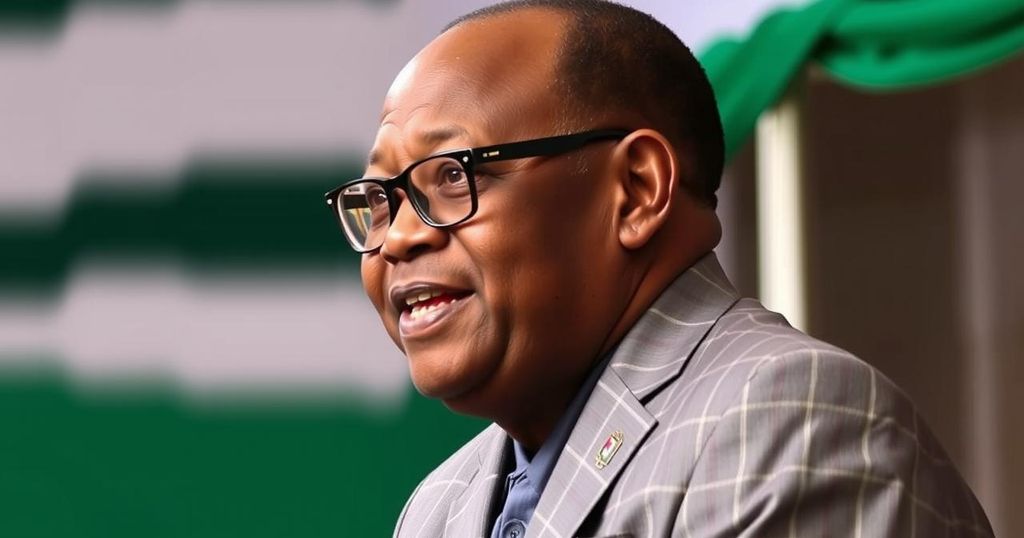Ghana’s 2024 Elections: NPP’s Defeat Amid Economic Crisis and Public Discontent
In the 2024 Ghanaian elections, the ruling NPP faced a decisive defeat against the opposition NDC, led by John Mahama. Economic crises, high inflation, unemployment, and public dissatisfaction with governance were major factors in the ruling party’s loss. The election underscored a shifting political landscape in Ghana and reflects a broader trend in Africa where voters are increasingly favoring opposition parties over long-standing incumbents.
In the recent 2024 Ghanaian elections, the ruling New Patriotic Party (NPP), led by Nana Akufo-Addo and Bawumia, suffered a significant defeat to the opposition National Democratic Congress (NDC), headed by John Mahama. This election marked the end of a government that had been in power for eight years, a critical moment in Ghana’s democratic history, as no ruling party has successfully maintained power for more than two terms since the start of the Fourth Republic in 1992. The NPP’s campaign aimed to extend its rule under the slogan “break the eight.” However, the dire economic situation and public discontent played a pivotal role in the election outcome.
The NPP’s tenure was marred by inflation rates soaring to 54% in 2023, and despite government claims of job creation, public sentiment reflected widespread dissatisfaction stemming from high unemployment rates and a cost-of-living crisis. Political researcher Mussa Dankwah indicated that the economy’s condition severely impacted the ruling government’s popularity. “The state of the economy caused the NPP government to lose this election,” he remarked, highlighting that citizens were profoundly affected by hunger and economic mismanagement.
Furthermore, the political landscape was complicated by growing concerns over corruption, ineffective projects, and illegal mining, with public protests reflecting the populace’s frustration. The NPP’s focus on initiatives like free senior high school education and digital economic policies did not resonate sufficiently with voters facing daily economic hardships.
The results indicated a major shift in voter sentiment, with the NDC reclaiming strongholds that the NPP had previously dominated, particularly notable in key swing regions such as Greater Accra and Central regions. This shift was evidenced by significant vote differences compared to previous elections, underscoring the electorate’s desire for change and new leadership.
In broader terms, Ghana’s electoral outcome is part of a notable trend across Africa in 2024, where multiple ruling parties experienced defeats, spurred by similar issues including economic crises and governance failures. This reflects a regional shift towards electoral accountability and voter engagement, ushering in fresh political dynamics across the continent.
The 2024 elections in Ghana represent a significant turning point in the nation’s political history, with the NPP’s defeat being emblematic of broader trends in African governance. Historical context reveals that since democratic elections commenced in 1992, no ruling party has maintained power beyond eight years. This election was marked by heightened tension as the economy faltered under the weight of inflation, unemployment, and a rising cost of living. The NPP, despite its efforts to promote social programs, struggled to maintain public support amid these challenges, resulting in a revitalized opposition movement led by John Mahama of the NDC, which capitalized on public discontent.
The 2024 election results in Ghana reveal a significant political shift, with the NDC, under John Mahama, successfully unseating a long-standing ruling party amidst widespread dissatisfaction with economic conditions and governance. The NPP’s inability to connect with voters, despite its efforts to implement various policies, underlines the influence of an informed electorate. This election not only exemplifies Ghana’s democratic maturity but also reflects a larger narrative across Africa where citizens are demanding accountability and effective leadership in response to economic and social challenges.
Original Source: www.bbc.com




Post Comment